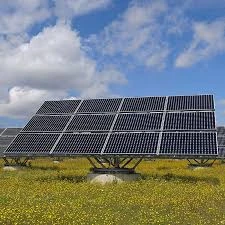solar panel system
The Rise of Solar Panel Systems A Sustainable Future
The urgent need for sustainable energy solutions has propelled the solar panel system into the spotlight. Solar energy, derived from the sun's rays, is one of the most abundant and cleanest sources of renewable energy available today. As the world grapples with climate change and the depletion of fossil fuels, solar panel systems emerge as a viable alternative that not only benefits the environment but also offers economic advantages for individuals and businesses alike.
At the core of solar energy technology are solar panels, which convert sunlight into electricity through photovoltaic (PV) cells. These cells are made from semiconductor materials, usually silicon, that generate direct current (DC) when exposed to sunlight. This electricity can either be used immediately, stored in batteries for later use, or converted into alternating current (AC) for home use via an inverter. This simple yet effective technology has been refined over the years, leading to higher efficiencies and lower costs.
One of the most significant advantages of solar panel systems is their positive impact on the environment. Solar energy production produces no greenhouse gas emissions, significantly reducing the carbon footprint compared to fossil fuels. In addition, solar energy reduces reliance on non-renewable resources, contributing to a more sustainable and resilient energy grid. As governments and organizations aim to meet international climate goals, investing in solar technology has become an essential strategy.
Economically, solar panel systems are becoming increasingly attractive. The initial investment in solar technology has been mitigated by falling prices of solar panels and an increase in efficiency. According to the National Renewable Energy Laboratory, the cost of solar energy has dropped by nearly 90% over the past decade, making it more accessible for homeowners and businesses. Furthermore, various incentives, such as tax credits, rebates, and feed-in tariffs, make solar energy even more affordable. For example, residential solar users can significantly lower their electricity bills, often reaching zero in well-designed systems. This translates to substantial savings over time, making solar an economically wise investment.
solar panel system

The versatility of solar panel systems also plays a crucial role in their popularity. Solar panels can be installed on rooftops, integrated into building materials, or used in utility-scale solar farms. This adaptability allows for a wide range of applications, from powering individual homes to supplying energy to entire communities. In remote or rural areas, where traditional power infrastructure is limited, off-grid solar systems can provide reliable electricity, improving quality of life and promoting economic development.
Moreover, solar power contributes to energy independence. By utilizing this renewable resource, countries can reduce their dependency on imported fossil fuels, enhancing their energy security. This shift towards local energy production fosters job creation within the solar industry, ranging from manufacturing and installation to maintenance and research. The growth of the sector has created millions of jobs, fueling economic development while addressing pressing environmental issues.
Despite its many advantages, some challenges remain in the widespread adoption of solar panel systems. Intermittency is a concern, as solar energy production fluctuates based on weather conditions and time of day. However, advancements in battery storage technology are gradually solving this issue by allowing for energy storage during sunny periods for use during cloudy days or at night. Additionally, investment in grid infrastructure and smart technology can enhance the reliability of solar energy distribution.
In conclusion, solar panel systems represent a significant step towards a more sustainable and economically viable energy future. Their ability to reduce greenhouse gas emissions, lower electricity costs, and foster energy independence makes them an attractive option for both individuals and businesses. As technological advancements and policy support continue to evolve, the solar industry will play a critical role in addressing global energy challenges and steering the world towards a greener, more sustainable future. By harnessing the power of the sun, we are not just investing in energy; we are investing in the health of our planet and the well-being of future generations.
-
String Solar Inverter: The High-Efficiency Solution for Smart Solar EnergyNewsJul.14,2025
-
Revolutionizing Rooftop Energy with the Power of the Micro Solar InverterNewsJul.14,2025
-
Power Independence with Smart Off Grid Solar Inverter SolutionsNewsJul.14,2025
-
On Grid Solar Inverter: Powering the Future with Smart Grid IntegrationNewsJul.14,2025
-
Monocrystalline Solar Panels: High-Efficiency Power for the Future of Clean EnergyNewsJul.14,2025
-
Bifacial Solar Panel: A Smarter Investment for Next-Generation Energy SystemsNewsJul.14,2025







